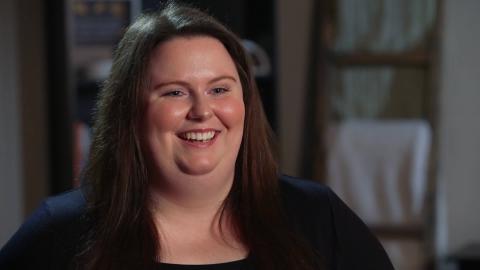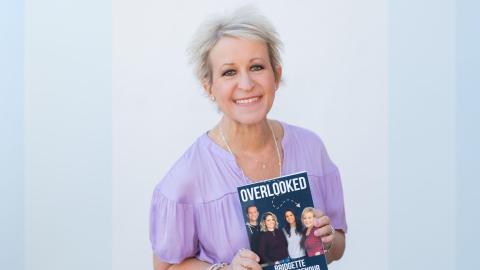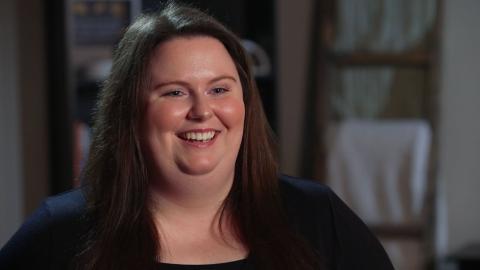Healing “Guilty for Surviving” Syndrome
“I just remember sobbing and just saying, ‘Why? Why is this happening to me, and why did they die? What’s it all for?’ I completely lost my faith.”
An Iraq War veteran, Ben Peterson grew up wanting nothing more than to become a soldier and make his family proud. It seemed like the only way to find acceptance.
“Grew up in a family that was pretty out of control,” Ben said. “There wasn't the emotional capacity to share that I was alone, I was depressed, I didn’t have a lot of friends. And in my house the greatest thing you could do with your life is serve America in combat. I wanted to gain power and respect, some approval from my dad.”
Ben’s feelings of isolation and powerlessness only worsened in high school when he became a target of intense bullying. But then something changed. One of the school bullies accepted Jesus and began leading other students to Christ. Ben was one of them.
“He started this Monday night prayer gathering and I went there,” Ben said. “I felt loved. I felt peace, and I gave my life to Jesus. There was still a lot of brokenness there, but the power of God had planted a seed in me, and that seed was starting to grow.”
At the age of seventeen he signed to the Army with the chance to join special forces, but he failed the color-blind test. He was given a choice: become an administrative specialist or a chaplain’s assistant.
“And I said, ‘Well, which one do I have a better chance at killing terrorists?’ And they said, ‘Well, maybe the chaplain’s assistant cause he carries a gun.’ And then they said, ‘Are you a Christian?’ There was just this little something, just that little whisper that said, ‘You got a calling on your life.’ And I said, ‘That's what I'm going to do.’”
In 2008, Ben, now twenty-one, deployed to Iraq, eager to serve his country. But his enthusiasm was short lived as the chaplain woke him on the sixth day of his tour with the words, ‘We had a fallen angel.’ Helicopter down.
“Seven of our guys are dead. Our chaplain probably counseled over one hundred soldiers in the course of thirty-six hours,” Ben said. “These are aviation units. We’re guys that have trained together for years. That’s family. You lose seven at once – I can’t even describe scene of devastation. And the next day it was like it never even happened. We got right back to work. That pushed down all the guilt and pain that I was feeling and just locked it up. Really wounded my faith, and that was the beginning of the tour, that was the first week.”
And it only got worse.
“A suicide bomber blew up a school outside of our base one day,” Ben said. “Killed, twenty, thirty kids, wounded another forty or fifty. Our base made the decision to go rescue these kids. I went into the hospital with my chaplain and there was one little girl with half her face missing. I was just heartbroken. I was just looking at her and time stood still. And then my chaplain came and he got me and said, ‘Hey, let's keep going.’ I wasn't prepared for people to die and I wasn’t prepared to see kids with their faces missing.”
Ben did his best to suppress his feelings, never sharing with anyone. He didn’t know the extent of his trauma until his tour ended and he tried to reacclimate to life in the States.
“I was really upset about the guys that died in combat,” Ben said. “There's that guilt of still being alive. I came home and that's when I just fell apart. I was getting drunk a lot. I had a nightmare that I was murdering children. Doing shameful things in your dreams, thinking that's who you are. That it's your fault that those kids got hurt. That you weren't a Special Forces guy, you were in the background. And all that trauma from being a child was coming up. And so then you want to feel powerful, you want to feel in control, you want to numb. And it was back to the alcohol.”
Eventually the pain became too much.
“Three in the morning, had a handgun, and I wanted to die,” Ben said. “I fell into a puddle of tears in the bedroom and just wanted to take my life.”
Ben stopped at the last moment. Still crying, he picked up his phone and called a friend and Christian mentor, confessing all that he was going through. His advice resonated with Ben.
“There's a Jesus victory beneath all of your pain. And if you trust Him, you're going to have a resurrection day. You're going to know why you went through what you went through. And He's going to work this for good. I looked down at the gun and said, ‘I don't want to do this. God has a plan for me.’”
Ben then knew he had to rely on God to get his life together in order to fulfill his purpose and honor those soldiers who’d died. He put down the bottle and picked up his Bible, praying every time he struggled with PTSD. He sought counseling and learned how to be transparent about his emotions and come to terms with his rough childhood. In 2016 he founded Engage Your Destiny, a ministry that teaches active-duty soldiers and veterans how to confront their traumas and share with others – and at the core of it all is Jesus Christ.
“You have to learn to trust Him,” Ben said. "And trust that He will take the darkest, most awful, vile, most horrific things in your past and He will work them for good. God took me when I was an emotionally fragile, weak, powerless human being, and He took me and He loved me. He healed me, mind, body and spirit. And then He took me with everything that I've learned through all the pain, all the trauma, and said, ‘Here's a mission to go help others who are going through the exact same thing.’ Jesus is the answer. He will always be the answer. He is who's going to radically transform your life and that’s what we’re seeing right now.”




